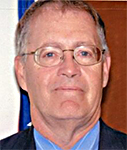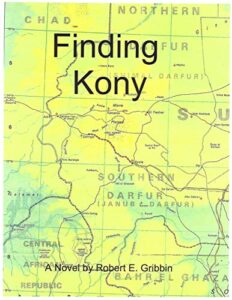Review | Finding Kony by Robert E. Gribbin (Kenya)
Finding Kony
by Robert E. Gribbin
Self Published
248 pages
November 2o22
$3.99 (Kindle); $15.99 (Paperback)
Reviewed by Alan G. Johnston (Kenya 1968-70)
Note: Both Robert Gribbin and Alan Johnston were in the Peace Corps group that arrived in Kenya in October 1968. They both spent many years in Africa.
•
On March 5, 2012 a U.S.-based NGO, Invisible Children, Inc., released a short documentary film called Kony 2012. The intent of the film, meant for world-wide distribution, was to make the infamous Ugandan warlord, Joseph Kony, leader of the Lord’s Resistance Army (LRA), so famous that he couldn’t hide. The goal was to have him arrested and brought to justice by the end of 2012. The film quickly went viral, garnering more than 100 million views and becoming the most “liked” video on YouTube.
The film highlights the announcement by Barack Obama in October 2011 that the U.S. would be sending 100 Special Forces military advisors to assist the Ugandan Defense Force in the search for Kony. The African Union quickly authorized a force of 5,000 military from Uganda, D.R. Congo, Central African Republic and South Sudan to carry out the hunt for Kony, with communications, intelligence, and logistics support from the U.S. advisors. By this time, Kony and his LRA had fled from Uganda to somewhere in Central Africa.
In the end, the hunt proved futile, although the LRA as a fighting force was greatly diminished. By April 2017 the United States concluded that the LRA no longer posed a threat to Uganda and the Special Forces were withdrawn. This is where Robert Gribbin and his new novel, Finding Kony, steps in. He calls on his protagonist, freelance journalist Paul Simmons, to take over the search. Gribbin calls on his lengthy experience throughout Central Africa to provide an authentic context for this dangerous adventure. We have met Simmons before as he risked his life time after time pursuing stories in South Sudan during a civil war (in Serpent of the Nile). He is a Black American former Peace Corps Volunteer and now freelance journalist based in Mombasa, Kenya. Once again he gets himself into some very tricky positions interviewing victims of LRA atrocities in Uganda in search of hints as to how to find Kony. He eventually heads off first to Chad and then by land through Sudan into Central Africa, illegally crossing more than one border, in his search to find and interview Kony to find out what Kony has to say about his goals and motivations.
Gribbin is particularly adept at providing a realistic and convincing picture of the complex environment of embassies, customs and immigration agencies, UN organizations, peace-keeping forces, NGOs, traditional leaders, and para-military groups. It is clear that Gribbin has visited refugee camps, and knows his way around the isolated and dusty towns and villages through which his fictional journalist must track his quarry.
This is a tale of adventure intertwined with real world humanitarian issues and the quest for justice. The International Criminal Court has indicted Kony for crimes against humanity. Is that case any closer to being resolved?
•

Robert E. Gribbin (Kenya 1968-70)
Robert E. Gribbin was a Peace Corps Volunteer (Kenya 1968-70), then served for thirty-five years in the U.S. Foreign Service, including postings in fifteen African countries and on delegations to the UN general Assembly and UN Human Rights Commission. He wrote In the Aftermath of Genocide: the U.S. Role in Rwanda – about his experiences as U.S. Ambassador in Rwanda (1996-99) and an earlier novel State of Decay: An Oubangui Chronicle set in the Central African Republic, where he was also an ambassador. Also the author of Murder in Mombasa, a mystery set in Kenya; The Last Rhino, which takes place in the Congo, and The Serpent of the Nile, an adventure story set in South Sudan. His new novel, Finding Kony, relates the horrors of the Lord’s Resistance Army and its messianic leader Joseph Kony. His many reviews of books about Africa can be found at www.rwandakenya.blogspot.com.
•
RPCV reviewer Alan G. Johnston (Kenya 1968-71) was, until his retirement in 2016, an independent consultant focusing on public health and international development, with a specialization in family planning, reproductive health and HIV/AIDS policy analysis, advocacy, and strategic planning. Before that, he worked for various organizations providing technical assistance and training to professionals and institutions in developing countries, including 11 years in long-term advisory positions (in Kenya, Nigeria, and Tanzania), and numerous short-term assignments.

Alan, thanks for writing a review and John, thanks for posting it. I hope readers will enjoy the tale. Bob Gribbin
I have kept in touch with my Ghana One 1961 group and we dozen now have a monthly zoom meeting for about an hour and it’s so great to talk about our lives back then and since (“sense” I wrote first here without thinking but truly expressing I think) — about our families, our travails, our continuing hopes and what we think and feel. They are such wonderful distant friends now from having been all over sharing.
We also talk of our aches, pains, losses, and finds. I missed the last ‘first Thursday” unavoidably due to my spouse who has been in hospital over 90 days with LVAD surgery and now just with ups and downs.
(So I didn’t get to share that this month.) And I didn’t get to hear these our/my sisters’ & brothers’ stories.